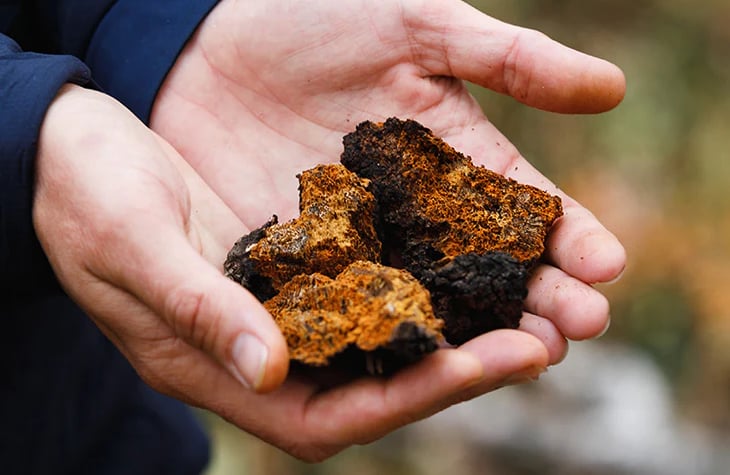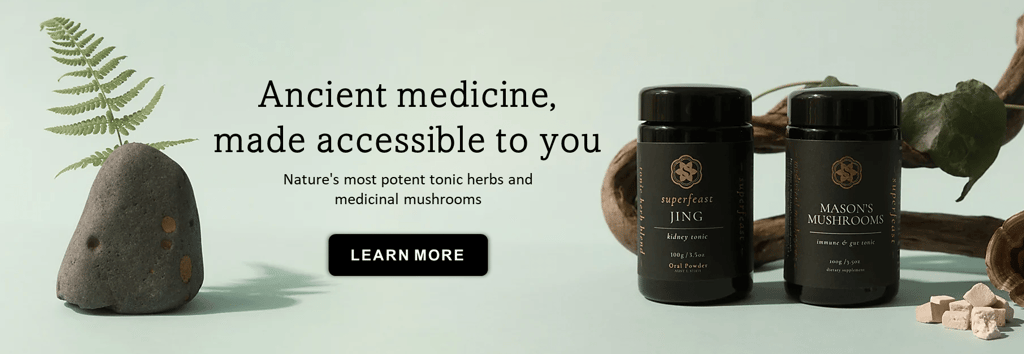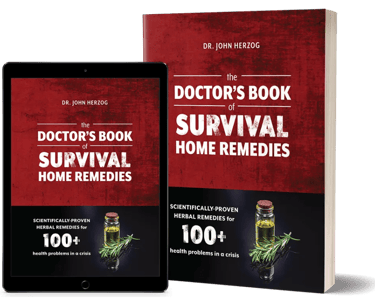
Ultimate Guide to Choosing the Best Medicinal Mushroom Supplements
Discover expert tips on quality, sourcing, and preparation to make informed decisions for optimal health and wellness with our ultimate buying guide for medicinal mushroom supplements.
HEALTHWELLNESS


An Introduction to Medicinal Mushrooms
In the realm of natural wellness, medicinal mushrooms have emerged as powerful allies in promoting health and vitality. Renowned for their remarkable ability to enhance immunity and adaptability, these mushrooms are among the most prized tonic herbs in traditional and modern medicine.
The Ancient Wisdom of Medicinal Mushrooms
In the practice of Taoist herbalism, medicinal mushrooms have been revered for centuries. These mushrooms are celebrated for their ability to harmonize the body's Qi (vital energy) and balance Yin and Yang, contributing to both physical and emotional well-being. Key adaptogenic mushrooms include Reishi, Chaga, Lion's Mane, and Cordyceps, each offering distinct healing benefits.
Reishi Mushroom: Known for its calming effects and immune-boosting properties.
Chaga Mushroom: Celebrated for its potent antioxidant and anti-inflammatory benefits.
Lion's Mane Mushroom: Renowned for enhancing cognitive function and mental clarity.
Cordyceps Mushroom: Valued for its energy-boosting and performance-enhancing properties.
These adaptogenic mushrooms blend ancient wisdom with modern science, serving as more than just dietary supplements. They offer a gateway to a balanced, holistic approach to health, supporting mental clarity, immune function, digestive health, and resilience against daily stressors.
Key Considerations When Choosing Medicinal Mushrooms
When exploring the world of medicinal mushrooms, it's important to consider several factors to ensure you're selecting high-quality products:
Sourcing: Where are the mushrooms grown? Ethical and sustainable sourcing can impact their effectiveness and purity.
Quality and Purity: Are the mushrooms free from contaminants and additives?
Growth Medium: Are they wood-grown or grain-grown? The growth medium can affect the mushroom’s quality and efficacy.
Form: Is the product made from the fruiting body or mycelium? Understanding the form can help you choose the most effective option.
Consumption Method: How should you take them? Options include capsules, powders, tinctures, or teas.
By considering these factors, you can make an informed choice and harness the full potential of medicinal mushrooms for achieving optimal health and longevity.
Sourcing Medicinal Mushrooms: Organic vs. Dì Dào
When selecting medicinal mushroom supplements, the sourcing and cultivation methods are crucial considerations. Organic certification is a key factor for many consumers, ensuring that the mushrooms are grown without synthetic pesticides or fertilizers. However, there are nuances to consider when evaluating the quality and effectiveness of these mushrooms.
Organic Certification: What You Need to Know
Organic certification signifies that the mushrooms are cultivated without the use of synthetic chemicals. This standard can reassure consumers about the safety and purity of the products they consume. However, there are some important factors to consider:
Certification Costs: Obtaining organic certification can be costly, and these expenses are often passed on to consumers. This can be a barrier for small, independent farmers who may practice organic farming but lack the resources for formal certification.
Quality Variances: While organic certification ensures no synthetic chemicals are used, it doesn’t always guarantee the highest nutrient density or medicinal efficacy. Factors such as soil quality, geographical region, and farming practices can significantly influence the mushrooms’ quality.
Environmental Impact: Organic farming generally has a lower environmental footprint compared to conventional methods. Nonetheless, it's essential to consider additional ecological factors like water usage, land efficiency, and transportation-related carbon emissions.
The Dì Dào Approach: A Traditional Perspective
An alternative to conventional organic farming is the Dì Dào method, which emphasizes growing herbs in their native and traditional environments. The concept of Dì Dào (地道) focuses on cultivating mushrooms in their ideal natural habitat, aligning with the traditional and spiritual aspects of their growth.
Traditional and Native Environments: Dì Dào mushrooms are grown in specific regions that match their natural ecological conditions. This method often results in mushrooms with enhanced potency and alignment with traditional uses.
Pesticide-Free Cultivation: Dì Dào practices ensure that mushrooms are cultivated in environments completely free of pesticides, whether they are wild-sourced or farmed.
Support for Small Farmers: The Dì Dào approach frequently involves collaboration with small-scale farmers who have deep-rooted knowledge and experience in traditional cultivation methods. This supports local communities and helps preserve age-old agricultural practices.
Holistic Approach: Although Dì Dào does not come with formal certification like organic farming, it embodies a holistic cultivation philosophy. This approach takes into account the interconnectedness of the ecosystem, land preservation, and the spiritual dimensions of farming.
Conclusion Organic vs Dì Dào
When choosing medicinal mushroom supplements, understanding the sourcing and cultivation methods is essential. While organic certification offers assurances about the absence of synthetic chemicals, the Dì Dào approach provides a deeper connection to traditional practices and the mushrooms’ native environments. Both methods have their benefits and considerations, so selecting the right option depends on individual preferences and values regarding sustainability, potency, and authenticity.
Quality & Purity of Medicinal Mushrooms
When selecting medicinal mushroom supplements, ensuring their quality and purity is paramount. High-quality products should meet rigorous standards and be free from contaminants. Here’s what you need to know to make an informed choice:
Ensuring Purity and Quality
Contaminant Testing: A top-quality medicinal mushroom supplement should be tested for heavy metals, pesticides, and microbial contamination. These tests are essential to ensure the product is safe and meets the stringent standards set by regulatory authorities such as the FDA (U.S.) and TGA (Australia).
Fingerprint Chromatography: This technique is used to verify the identity of the mushroom species. Ensuring the correct species is essential for effective medicinal benefits.
Transparency: Reputable brands are transparent about their testing practices. They typically provide a Certificate of Analysis (CoA) on their website. If not available, don’t hesitate to contact the brand for further information.
Wood vs. Grain-Grown Mushrooms
The substrate used to grow medicinal mushrooms—wood or grain—can significantly impact their quality and potency. Here’s a breakdown of the differences:
Wood-Grown Mushrooms: Mushrooms grown on wood substrates generally have a more complex and diverse nutrient profile. Wood provides a broader range of nutrients and phytochemicals that can enhance the medicinal properties of the mushrooms. Additionally, wood substrates are often more sustainable and environmentally friendly, sourced from wood waste or sustainably managed forests.
Grain-Grown Mushrooms: While grain substrates are commonly used, they can affect the nutrient composition of the mushrooms. Mycelium grown on grain often contains 60-70% grain, which can dilute the concentration of active compounds. This may lead to a lower-quality supplement compared to those grown on wood.
Fruiting Body vs. Mycelium
A key consideration when choosing medicinal mushroom supplements is whether they are made from the fruiting body or mycelium of the mushroom:
Fruiting Body: The fruiting body is the part of the mushroom that is most commonly recognized and harvested for its medicinal compounds. It typically contains higher levels of beneficial substances like beta-glucans, betulinic acid, and triterpenoids. Research and traditional use suggest that fruiting body supplements are often more effective.
Mycelium: The mycelium is the network of the fungus that helps the mushroom spread. When grown on grain-based substrates, mycelium supplements can be less effective due to the high grain content, which can dilute the concentration of active compounds.
Additional Considerations
Taste: High-quality medicinal mushrooms should have a distinct, bitter taste, which is indicative of the presence of triterpenes, a bitter-tasting active compound.
Color: The color of mushroom extracts varies depending on the mushroom species. Myceliated grain supplements may appear lighter and more uniform, while fruiting body extracts, like Reishi, should exhibit deep, rich colors.
By paying attention to these factors, you can select a medicinal mushroom supplement that meets high standards of quality and purity, ensuring you receive the maximum health benefits.
Form & Preparation of Medicinal Mushrooms
When selecting medicinal mushroom supplements, the form and preparation method are crucial factors that can influence the effectiveness and potency of the product. Medicinal mushrooms typically come in three main forms: powder, capsules, and liquid extracts. Your choice depends on personal preference, but understanding the extraction process can help you make an informed decision.
Forms of Medicinal Mushroom Supplements
Powder: Mushroom powders are versatile and can be added to smoothies, teas, or other recipes. They often provide a more comprehensive profile of the mushroom’s bioactive compounds.
Capsules: Convenient and easy to dose, capsules are a popular choice for those who prefer a quick and straightforward way to consume their supplements.
Liquid Extracts: These extracts are highly concentrated and typically provide a faster absorption rate. They can be taken directly or mixed into beverages.
Extraction Methods: Dual-Extract and Beyond
The extraction process significantly impacts the potency and bioavailability of medicinal mushrooms. One common method is the dual-extract process, which utilizes both water and alcohol to extract the full spectrum of medicinal compounds.
Water Extraction: Water (the universal solvent) extracts water-soluble components, such as polysaccharides and beta-glucans, which are crucial for immune support and other health benefits.
Alcohol Extraction: Alcohol is used to extract fat-soluble compounds and bitter constituents, including triterpenes and essential oils, which enhance the therapeutic properties of the mushroom.
The dual-extract method ensures a comprehensive profile of the mushroom’s medicinal properties. However, the optimal extraction method can vary depending on the specific mushroom and its active constituents. For instance, Lion’s Mane has shown benefits for brain health and nerve regeneration with aqueous (water) extraction, a traditional method in Taoist herbalism.
Dosage & How to Use Medicinal Mushrooms
When incorporating medicinal mushrooms into your routine, consider these key guidelines:
Start Slow: Begin with a small dose and gradually increase it to find your optimal dosage, often referred to as your ‘sweet spot.’ This approach helps you gauge how the mushrooms affect you personally.
Be Consistent: Regular, consistent use is essential for experiencing the full benefits of medicinal mushrooms. Longevity in practice contributes to long-term health improvements.
Listen to Your Body: Track your physical, mental, and emotional changes. Keeping a journal or noting changes in energy, sleep, stress levels, and mood can help you monitor your progress.
Be Patient: Results can vary based on individual health conditions and body systems. Some people may see improvements sooner than others, so patience and regular assessment are key.
Choosing the Right Medicinal Mushroom
Here’s a brief overview to help you select the right mushroom based on your health goals:
Lion's Mane: Supports focus, memory, cognition, nerve health, digestion, stress response, immunity, energy, and vitality.
Chaga: Beneficial for digestion, candida, immunity, antioxidant defenses, blood sugar regulation, and energy.
Reishi: Enhances sleep, stress management, emotional health, allergies, hormonal balance, immunity, and energy.
Tremella: Promotes skin hydration, radiance, lung and digestive health, and antioxidant defenses.
Turkey Tail: Supports immunity, lung health, stress response, and digestion.
Cordyceps: Boosts physical endurance, performance, energy, and supports lung, kidney, and immune health.
Mason's Mushrooms & Mushroom M8: Aids immunity, stress response, hormonal health, digestive function, energy, vitality, and antioxidant defenses.




Copyright © 2025 Djedi Living. All rights reserved.
Disclaimer
This site is not intended to provide and does not constitute medical, legal, or other professional advice. The content on DjediLiving.com is designed to support, not replace, medical or psychiatric treatment. Please seek professional care if you believe you may have a condition.
DjediLiving.com may earn affiliate income from qualifying purchases.
Before using the site, please read our








